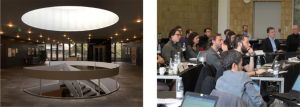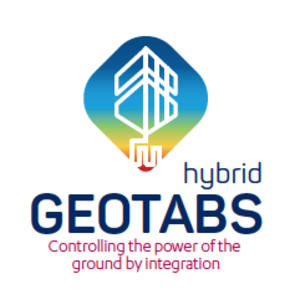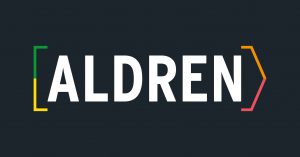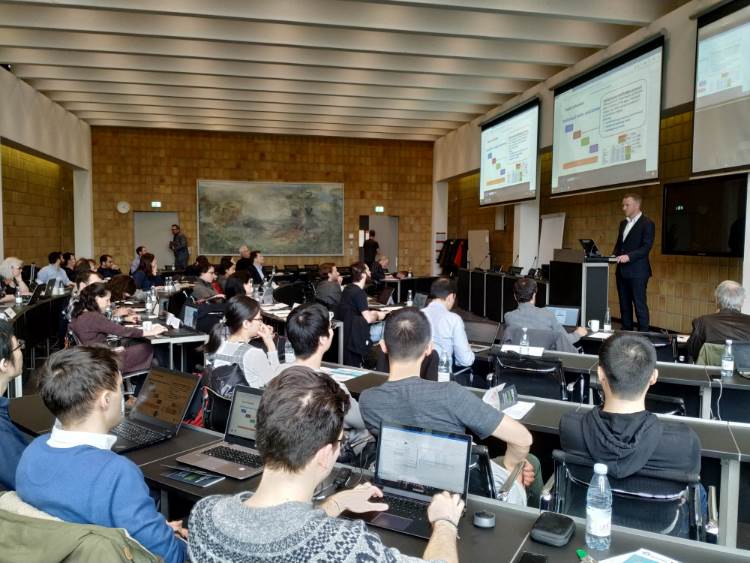
Below is a list of all the presentations made:
The ALDREN procedure:
- Introduction to ALDREN (click here) – Mathieu Rivallain, CSTB
- EVCS ratings (click here) – Jana Bendžalová, ENBEE
- Energy Performance Verification (click here) – Robert Cohen, Verco
- Indoor Environmental Quality (IEQ), Productivity and Health (click here) – Pawel Wargocki, DTU
- Financial Performance (click here) – Yona Kamelgarn, Certivea
- ALDREN Building Renovation Passport & Renovation Strategies (click here) – Marta Maria Sesena, PoliMI
hybridGEOTABS – Radiant Heating & Cooling, IEQ, Health Productivity and Comfort:
- The history of TABS and its worldwide applications (click here) – Bjarne W. Olesen, DTU
- How to design a hybridGEOTABS building? (state-of-the-art) (click here) – Wim Boydens & Jelle Laverge, UGent
- Innovative controls in hybridGEOTABS: MPC concept and first results (click here) – Jiri Cigler, Energoklastr
- Indoor Environmental Quality Productivity and Health (click here) – Pawel Wargocki, DTU
- Innovations in radiant heating and cooling systems: use of PCM (click here) – Ongun B. Kazanci, DTU
The session ended with a live poll among attendees who belonged, mostly, to the field of research. The complete results of this poll can be seen through this link (click here). In relation to the ALDREN project, the following answers should be highlighted:
- One third of respondents are familiar with voluntary certification schemes, especially regarding energy savings and moderately familiar with EPB standards, both first generation (2007) and second generation (2017).
- The majority considers the application of the European Voluntary Certification Scheme (EVCS) to its activity useful, especially for issues of comparability, reliability in the calculations and for investments in solutions and innovative systems.
- The majority of respondents are in favor of integrating the EVCS within existing mandatory or voluntary schemes, since the European market would benefit from a harmonized solution based on standards. The majority considers that the energy renewal process must be complemented with Indoor Environmental Quality parameteres and believe that the list of parameters proposed in ALDREN is adequate.
- In general, the ALDREN Passport is perceived as interesting to increase success in the market and is mainly aimed at: Banks and financing institutions, property owners, EU Member States, building professionals (certifications), building managers, and insurance companies.
The Q&As from the discussion following the workshop can be seen through this link (click here).
MORE INFORMATION ABOUT BOTH PROJECTS:
 Follow hybridGEOTABS project : Web, Twitter, Facebook, LinkedIn / Sign-up here to hybridGEOTABS e-newsletters.
Follow hybridGEOTABS project : Web, Twitter, Facebook, LinkedIn / Sign-up here to hybridGEOTABS e-newsletters.
hybridGEOTABS is an active research project aiming to optimise the predesign and operation of a hybrid combination of geothermal heat pumps (GEO-HP) and thermally activated building systems (TABS).
They are designing an improved, automated ‘Model Predictive Control’ (MPC) solution for testing on hybrid supply and emission systems in demonstration buildings such as offices, elderly care homes, schools and apartment blocks. Applying MPC to hybridGEOTABS optimises the performance and efficiency, making it more economically attractive and increasing take up.

Follow ALDREN project : Web, Twitter, Facebook, LinkedIn / Sign-up here to ALDREN’s e-newsletters
The ALDREN project (Alliance for Deep Renovation in Buildings) is the further development and the implementation of a common European Voluntary Certification Scheme (EVCS) for non-residential buildings based on the EPBD Art. 11(9) and CEN and ISO standards. The ALDREN approach supports the EU initiatives and Directives (EED, EPBD). ALDREN renovation protocols may be used as an energy module in existing schemes or as a standalone tool, being potentially overtaken by Member States of the European Union. The main goal of ALDREN is to motivate the construction sector value chain stakeholders to undertake deep renovation projects on their properties.
In the ALDREN project phase the upgraded EVCS will be implemented in pilot office and hotels buildings in different climates of the European territory.



 Follow hybridGEOTABS project :
Follow hybridGEOTABS project : 

Recent Comments